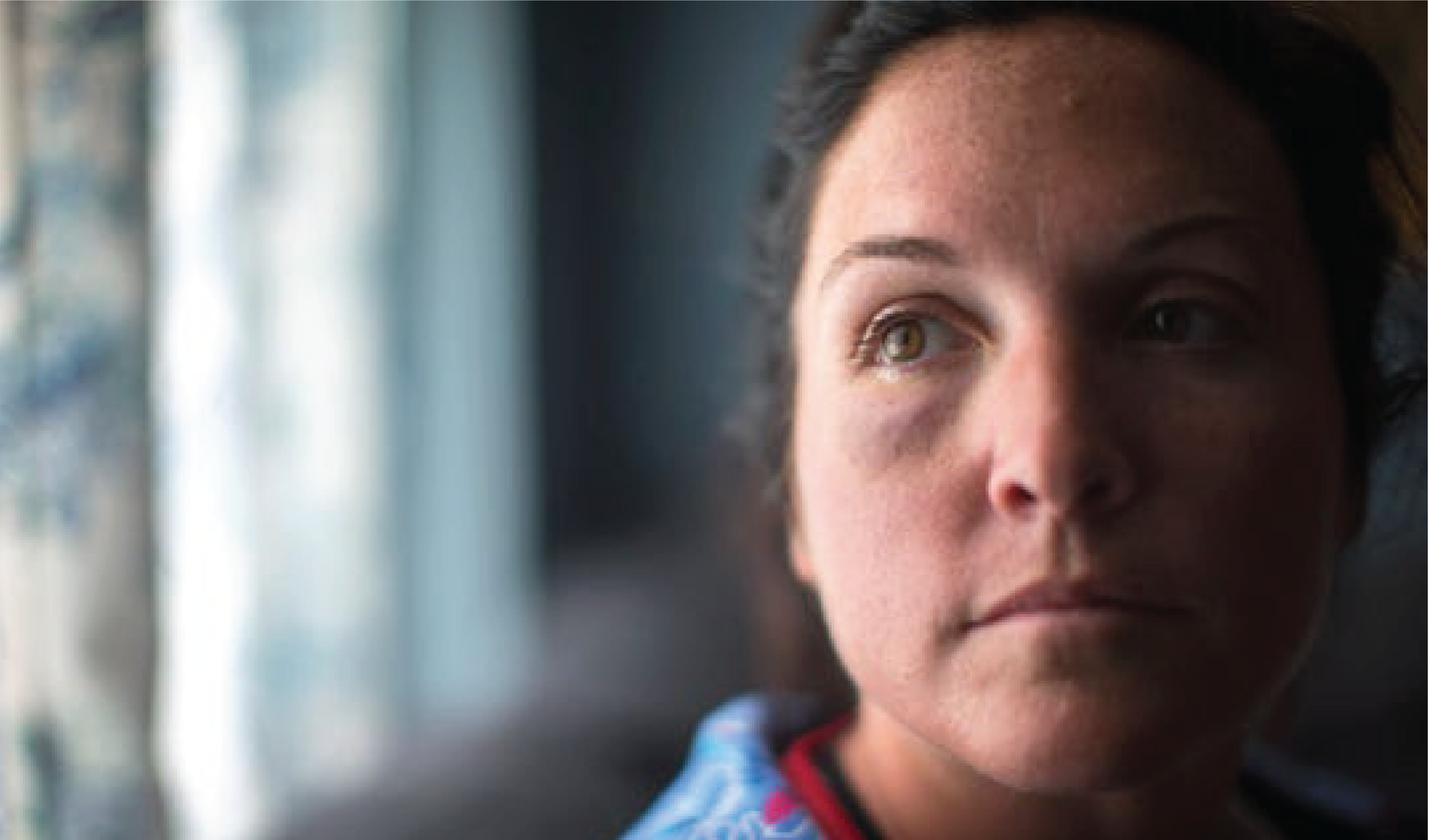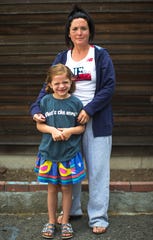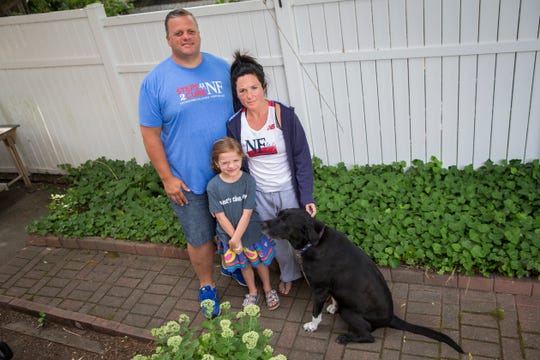Couple give embryos, 'hope' to UM in fight against rare disease
Author: Kim Kozlowski, Detroit News
Published On: 09/12/2019

Alexandra Cellucci was 28 when she was diagnosed with neurofibromatosis, a rare genetic disease that causes noncancerous tumors to grow on the body's nervous tissues. She was also eight months pregnant at the time, but she would eventually deliver a healthy baby girl.
 Neurofibromatosis, known as NF for short, runs in Cellucci's family, so she knew her daughter could have the disease and she could pass it on to future children. So she and her husband, Marc, used reproductive medicine to conceive another baby, had the embryos tested for the gene that causes NF and had doctors implant embryos in her womb without the mutated gene.
Neurofibromatosis, known as NF for short, runs in Cellucci's family, so she knew her daughter could have the disease and she could pass it on to future children. So she and her husband, Marc, used reproductive medicine to conceive another baby, had the embryos tested for the gene that causes NF and had doctors implant embryos in her womb without the mutated gene.
Cellucci, now 35, never got pregnant again, despite many attempts. She and her husband have since learned their daughter Maible, now 6, also carries the gene for NF2, one of the three forms of the disease. The day before Maible's birthday last November, the girl asked if she had the disease. Cellucci said she told her yes and that she would be OK.
That's why the Massachusetts couple donated seven embryos with the NF2 gene to the University of Michigan so researchers could create an embryonic stem cell line that other researchers could study, with the hope of one day discovering a breakthrough. In a perfect world, such a development would come before their daughter endures any symptoms.
“I just wanted hope," said Cellucci, who had surgery last month to remove a benign tumor behind her eye. "They could possibly find a cure for (Maible) ... and offer hope for other families."
UM researchers have turned the Celluccis' embryos into the first stem cell line that models NF2, which is one of the more rare forms of the disease. Besides the tumor growth, NF2 comes with a host of issues, including hearing loss, ringing in the ears and loss of balance. Symptoms typically appear in the teen years.
The embryonic stem cell line modeling the disease, created by Professor Gary Smith, director of the MStem Cell Laboratories, has been accepted onto the National Institutes of Health Human Embryonic Stem Cell Registry for other scientists to study and make discoveries around interventions and a possible cure. Another line also is under review.
Researchers can apply to access the stem cell lines on the federal registry to study how diseases form and develop, with the aim of finding ways to better understand, treat, delay and possibly even cure diseases.
 Smith has derived all of UM's 56 embryonic stem cell lines on the national registry, including 36 disease-specific lines. He said the personal stories behind all of those stem cell lines are important.
Smith has derived all of UM's 56 embryonic stem cell lines on the national registry, including 36 disease-specific lines. He said the personal stories behind all of those stem cell lines are important.
"We just don't do science to do science," Smith said. "We do science to help others. Here is a family that recognizes that. Sometimes that gets lost on people. ... We really do want to help people."
Read the full story HERE.
Want to view archived newsletters? Click Here!
Newsletter
Sign up to receive the latest neurofibromatosis news and information in your inbox!
Subscribe